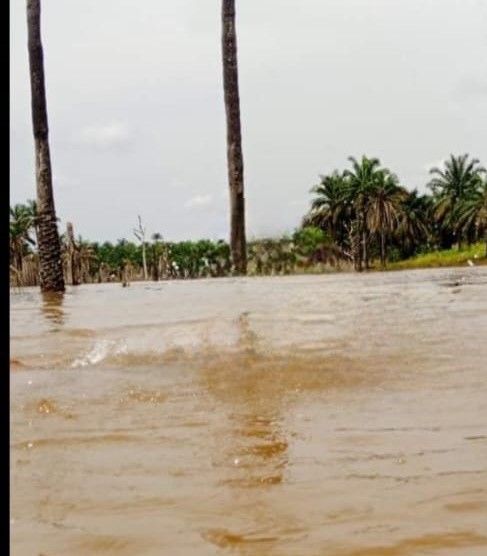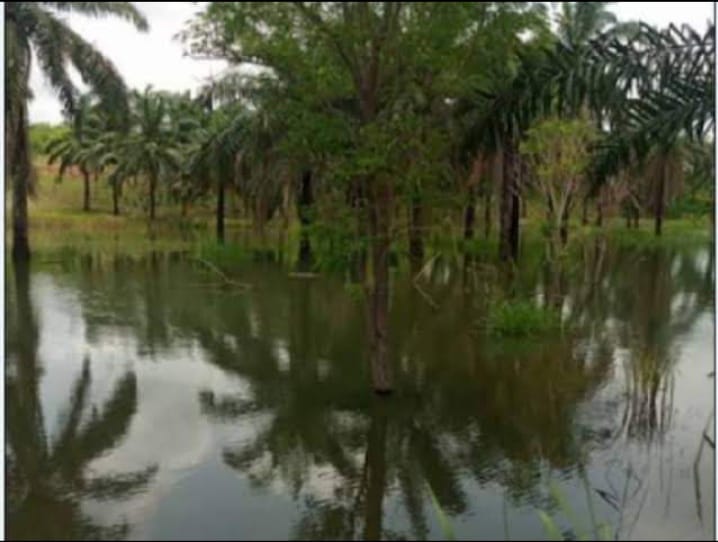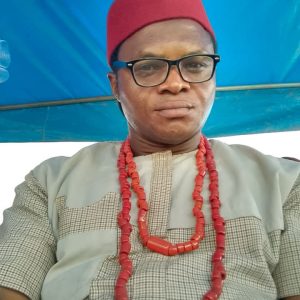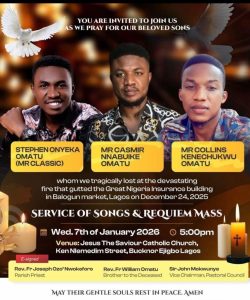ADADA IBAGWA-AKA TOURISM INITIATIVE REPORT

“A River is more than an amenity. It is a treasure.”
INTRODUCTION:
Adada Ibagwa-Aka Tourism Project Development is a task and naturally a responsibility for this generation of businessmen and intellectuals of Ibagwa-Aka extraction.
On 2nd September 2021, a committee made up of six distinguished personalities of Ibagwa-Aka was put together by the executive of Ibagwa-Aka Town Union. Among other things, they were called upon to study the tourism potential of the Adada Ibagwa-Aka river. The mandate suggests a comprehensive study and examination of the social, economic and tourism benefits of the river to Ibagwa-Aka, Igbo-Eze South, Enugu State and humanity.
The committee started work on Monday, 4th October 2021, with a physical tour of the length and breath of the river. We witnessed its uncontrollable rise and push towards Egu-Onicha-Ibagwa-Aka. The tour took us over five hours to accomplish. It was tough, experiential but fulfilling.
To facilitate the execution of this onerous task, 12 point terms of reference was developed by the committee. However, part of the terms of reference has been modified to suit what we met on ground. Before delving into the TOR, let us examine the benefits of tourism as considered by other authorities. Since the advantages far outweighs the disadvantages, we chose not to talk about the disadvantages.
BENEFITS OF TOURISM
Tourism boosts the revenue of the economy, creates thousands of jobs, develops the infrastructures of a country, and plants a sense of cultural exchange between foreigners and citizens. The number of jobs created by tourism in many different areas is significant
What are the Benefits of Tourism for the Individual and Society?
Tourism offers multiple benefits to the individuals as well as society. At the individual level, tourism opens the gate to the outside world. People get to see, experience and know what is lying beyond the world they live in. This, in turn, enriches their knowledge about people, customs and traditions of other places.
https://www.anamikaacademy.com › …
Five Benefits of Tourism to the Host Community
The gains of a community where a popular tourist destination is domiciled are endless. This is why many tourism stakeholders have encouraged the government to upgrade or revamp the many tourist destinations in Nigeria-which are in dire need of attention. This will enable the host community to enjoy the many benefits of such an attraction. As such, Jumia Travel, the leading online travel agency, shares some of the benefits of tourism to the host community.
1. Employment
This is perhaps the biggest benefit of tourism to any host community. It will definitely create skilled and unskilled employment. Souvenir sellers, food vendors and retailers will naturally spring up within the community because they are aware tourists will need their services.
2. Increased standard of living
There will be nothing like capital flight because tourists are spending in the host community and of course, the money made will be injected into the economy of the host community thus improving the standard of living.
3. Opportunity to preserve culture
In addition to earning revenue, there are also cultural advantages to tourism. It can be a source of pride for local communities, and allows them to look at their history, and cultural heritage and develop their own community identity. This helps the local residents to maintain their traditions and culture, while also showcasing it for all the visitors.
4. Improved infrastructure
The additional revenue that comes into a community also benefits the government. It means more money will be available to give these destinations a much-needed facelift. This means the infrastructure improves, with new roads being built, parks developed and public spaces improved. The better facilities bring in more visitors.
5. Develop other income streams
In addition to improving the economy of the host community, it also allows an economy to develop a new form of income. This acts as an insurance policy in case of hard times because the additional monies coming in can help support traditional industries in case they come under financial pressure.
Source Google: www.vanguardngr.com

(1) Defining the True Potential of Adada Ibagwa-Aka River:
Adada Ibagwa-Aka river, that disappeared around 1969 at the tail end of the Nigeria/Biafra Civil War, and reappeared around 2017 (after over 50 years), can be courageously described as one of the miracles of the twenty-first century which nature effortlessly delivered to Ibagwa-Aka..
Rivers, according to google books, constitute a major tourism resource, providing spectacular settings, recreation facilities, a means of transport, a sense of heritage, adventure, links with the environment and natural world.
There is no gainsaying the fact that it has the potential to cause the emergence of a satellite town around its water lines in no-distant future. In addition, and if properly planned and harnessed, a water-front-kind of market is inevitable and to add that it is going to be a tourists’ delight and a travelers’ heaven is an understatement. The expected ripple effect will be a beehive of unimaginable economic activities springing up.
(2) Tinkering Over a Deliberate Enlightenment Program on Adada Tourism Initiative:
There is a need to employ a powerful, sustained, publicity and enlightenment program. This is one important way to get investors to partner with our own people who have the wherewithal to invest in the project. This can be achieved through the use of popular and modern means of mass communication and mass mobilization like radio, television, newspapers, magazines, handbills and of course social media.
(3) Study the Possibility of Opportunity for Dry Season Farming Using Surface and Sprinkler Systems of Irrigation.
Our physical examination of the cascading power of the river, which we suspect is propelled from the deep inner core of the river’s ocean floors, shows a propensity for endless flow. This inevitably means that Adada River is capable of supporting both surface and sprinkler irrigation systems especially during the dry season. However, there may be a need to engage more experts in river basin development to ascertain the possibility of this postulation in this respect.
Our research clearly indicates that there has been an example of a tiny river developed into a hydro-carrying river. This is the famous Bakolori river that houses Bakolori Dam and hydroelectric generating turbine in the present day Talata Mafara LGA, Zamfara state.
(4) Determine the Possibility of Constructing Earth Dam to Save the River from Endless and Uncontrolled Long Distance Flow and Atmospheric Dissipation through aimless direction due to man’s activities that affected the natural waterways and landforms.
Uncontrollable flow is sure to cause the river to dry or disappear again. This is because its natural causes have been tampered with as a result of man’s activities of fifty years during the time the river dried up.
As earlier stated, one clear example of a tiny river turned into ocean is the Bakolori River, that supplies water which propels the Bakolori turbine, a tributary of the Sokoto Rima River.
Construction of Bakolori Dam began in 1974 and was completed in 1978, four years after. It has a capacity of 450 million cubic meters, with a reservoir covering 8,000 hectares extending 19km. This dam provides a year-round irrigation for surface and sprinkler systems in the Sokoto Rima Basin plain (source Google). No one is suggesting that we build a dam as large as the Bakolori. However, this was cited here to show how a small thing was turned into a big thing through determination and will power.
(5) Consider ways and means of attracting investors and public spirited individuals to invest in the Adada river tourism.
A project of this magnitude requires all hands on deck to achieve. However, it is important that we first begin. Our people must first show faith and enthusiasm in this extraordinary vision. Investors will surely come when there has been appreciable work on the ground. For example a good road network must have been put in place, followed by clearing the surroundings and constructing open spaces with concrete seats and tables at strategic locations along the riverfronts. This will be followed by inviting local, state governments, banks, non-governmental organizations and private individual investors.
(6) Consider provision of security personnel to guide and guard against fetish and sacrificial objectics being placed at the entrance of the river.
In any human endeavour, security should be considered as the number one priority. During one of our various inspections, we saw carcasses of sacrificed animals and fetish objectics. This must be strongly guided against. In fact, a law prohibiting such primitive and anti-social practices must be enacted. For example, a member of this committee’s visit to Adada river in 2018 refers. According to him, it was shocking to find several fetish objectics including a tortoise carcass lying in front of the swimming parth. We suggest the enactment of a strict bye-law to guide against practices like this.
(7) Determine how best to partner with the local authorities/State authorities in order to construct an access road from Ibagwa-Aka township to Adada river for ease of tourism activities.
There is no argument about the importance of a good access and asphalted road. Since the crux of this matter is tourism and tourists, roads will be considered as number one infrastructure. We suggest a road network at the southern part of the river running from ‘Ndida-Hausa’ to Ikolo and from Ikolo down to ‘Uzoida’ and then into the river. Another road at the Northern side should take off after Ngwo-Adada/Itchi road and run to Nketenke Eburumiri. These roads have been the ancient thoroughfare from cradle to civilization. Other possible new roads from Ngwo-Adada left, (as you head to Itchi), angling horizontally to Uzoida may be desirable.
(8) Negotiate for land for recreational and sports activities.
The committee, after due consideration, agreed strongly that there is no way we can have a good tourism setting without a sizable expanse of land. Consequent upon this, we are proposing the immediate purchase of a piece of land capable of containing the following sporting activities:
i. Swimming pool
ii. Mini stadium
iii. Three-Star hotel
iv. Mini-Supermarket etc.
In consideration of the foregoing, we suggest an immediate acquisition of a piece of land not less than 200 plots in size to be secured with perimeter fence.
(9) Organise an immediate swimming coaching course for our youths in order to guard against possible loss of lives through accidents of getting drowned.
The above is self- explanatory. As the river continues to rise, the possibility of getting drowned becomes inevitable. Coaching course or a river-guard who has the knowledge of swimming will perform the dual role.
(10) Erect tourists’ huts and construct concrete benches for visitors and tourists’ comforts.
As a first step to getting tourists’ to understand that things will soon begin to happen at Adada, both the Uzoida and Agbapata inlets to the river must be given a semblance of a tourists’ center. This can be done with the construction of local canopies or village huts with grasses that are readily available in great quantities around the river. Equally very important is hard-wood or concrete seating benches to aid tourists’ comforts. In addition, musical equipment/public address systems could be installed there as soon as a place of relaxation is put in place and security posts established.
(11) Clear debris, wreckages, water weeds and provide safety gears – lifebuoys, inflated tyres and life jackets etc. and engage experts for the confirmation of the PH level of the water and introduce more species of fish fingerlings and guidelines for fishing.
(12) Recommend marketing and economic opportunities available and suitable for ‘Adada Tourism Project.’
SUMMARY AND RECOMMENDATION
The committee after a detailed study, research and thorough investigations, and following the already established protocol which is the “Terms of Reference”, makes inferences and recommendations as follows:
(a) That Adada river is a minefield ready to be tapped.
(b) That a strategic investment is needed in the river basin in order to tap its potential for future improvement in the economic benefits of our people.
(c) That both businessmen and intellectuals must partner in order to have full benefits of the river resources.
(d) That stakeholders, (in this case, Ib.TU) and Ibagwa-Aka indigenes, must engage both local and state governments in the “Adada Tourism Initiative Project.”
(e) That a special but ‘Long Term Committee’ to oversee the step by step execution of a white paper that may come out of this committee report, is inevitable. This is to forstall abandonment when the initiators of this exercise leave office.
(f) That there may be need to invite International donor agencies, non-governmental organizations etc. to partner with the community because of the enormous financial implication of the project
This must be done with the permission and collaboration of both the local and state governments.
(g) That Adada water body should not be allowed to be abused or else we might lose it faster than we may imagine. A local task force can be set to ensure that tanker drivers do not draw from it for building purposes for now. Its use for irrigation should be regulated. Because of the water body’s tourism potential, undergrowths and vegetation would need to be cleared to enable speed boats to run on it.
(h) That we can have a semblance of the Argungu Fishing Festival which can be a source of earnings for the town union/community.
(i) That to optimise its tourism potential, there is utmost need for it to be modestly dredged.
(j) Tentatively, we are putting a budget of #2.5 billion Naira on the project. We advise that the project be divided in phases.
Phase 1. Road infrastructure and purchase of two hundred plots of land.
Phase 2. Construction of village huts with fine grasses (ize) from the Ogba hill.
Phase 3. Three star hotel and Swimming pool.
Phase 4. A mini- Stadium with synthetic grass.
Quote:
“If you have learnt to enjoy life without purpose like a flowing river, you have learnt the art of living.” …Girdhar Joshi.


